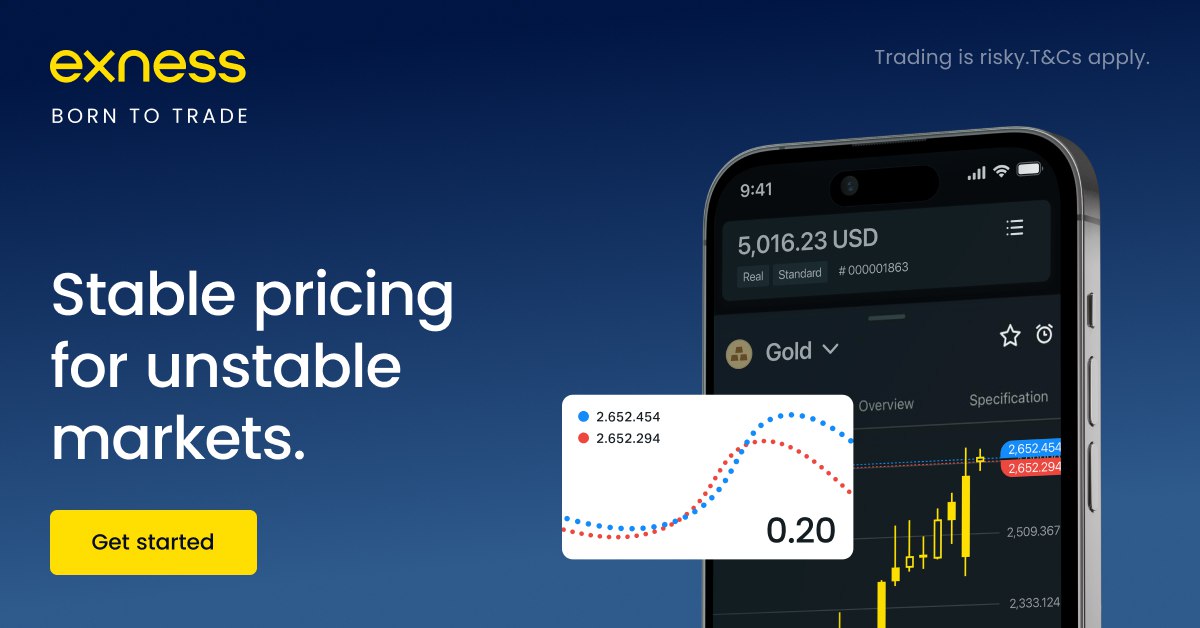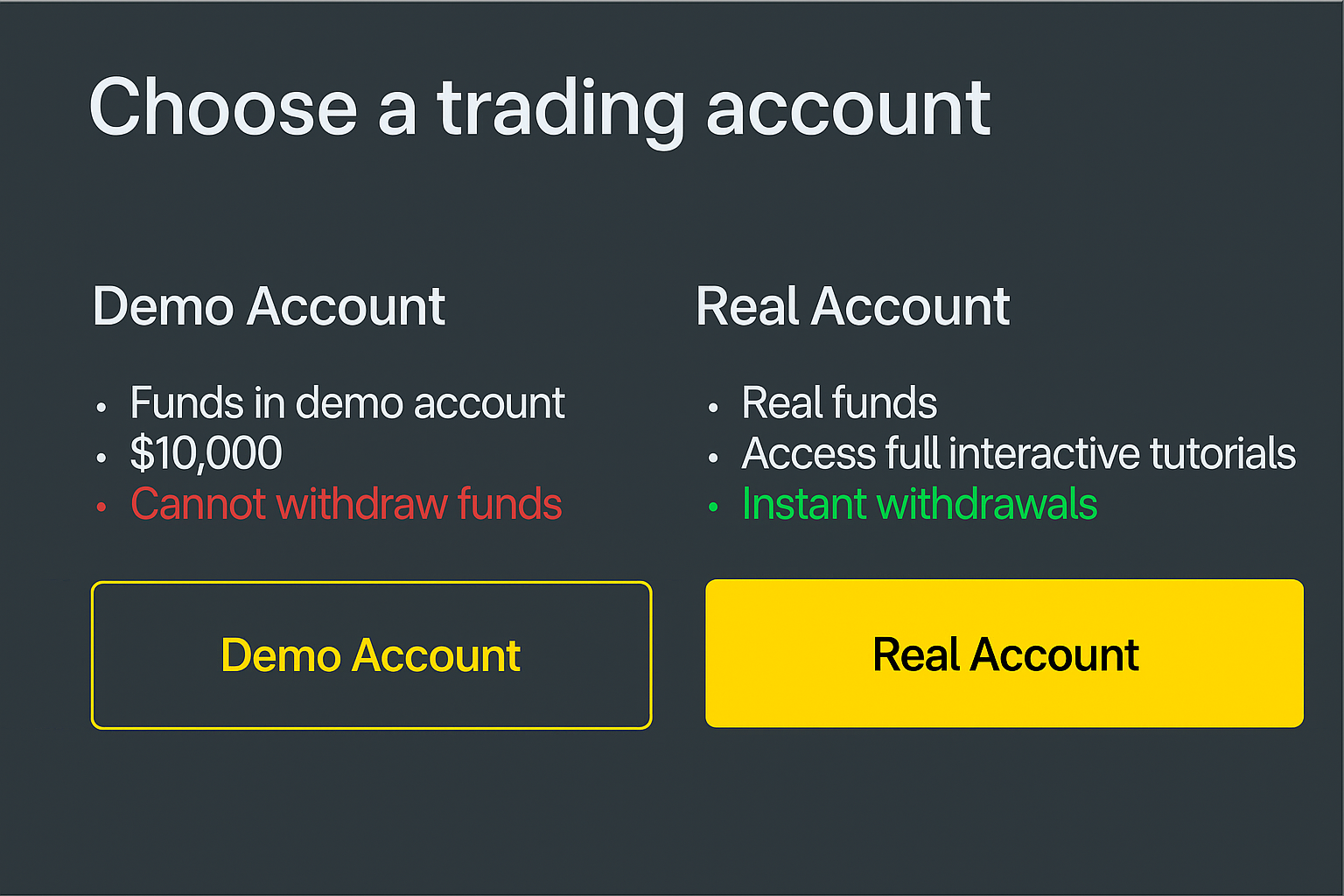
4 minute read
EXNESS Vs Delta Exchange in India (2025) | Which One is Better? Review, Fees, Spread
from Exness Guide
As online trading continues to grow in India and globally, two prominent platforms are often compared: EXNESS, a globally regulated multi-asset broker, and Delta Exchange, a niche platform focused on crypto derivatives. But when it comes to overall performance, features, fees, and user experience — which one is better in 2025?
Let’s break it down across all key metrics: regulation, assets, fees, spreads, platform usability, and more.
2. Regulation and Safety
EXNESS operates under multiple global financial regulators, including the FCA (UK), CySEC (EU), and FSCA (South Africa). This offers strong investor protection, strict financial transparency, and compliance.
Delta Exchange, on the other hand, is registered in St. Vincent & the Grenadines and holds no global Tier-1 licenses. While it allows Indian users to deposit INR and offers crypto-native services, it lacks the regulatory oversight that traditional brokers like EXNESS offer.
👉 Winner: EXNESS – Offers stronger global regulatory safety and client protection.

3. Asset Variety
EXNESS supports trading across:
Over 90+ forex pairs
Precious metals like gold and silver
Energies including oil
Global indices
100+ stock CFDs
30+ cryptocurrency CFDs (e.g., BTC/USD, ETH/USD)
Delta Exchange specializes only in:
Crypto futures (BTC, ETH, altcoins)
Options contracts
Interest rate swaps and perpetual contracts
👉 Winner: EXNESS – More diversified and multi-asset offerings suitable for all trading styles.
4. Spreads and Commissions
EXNESS offers highly competitive spreads:
Standard Account: From 0.3 pips, no commission
Raw Spread Account: From 0.0 pips + $3.5/lot
Zero Account: 0.0 pips on 30+ pairs, ultra-low commissions
Pro Account: Tight spreads, commission-free
In contrast, Delta Exchange charges comparatively high trading fees due to its crypto derivatives nature. Option premiums, funding fees, and taker/maker fees can add up significantly — often exceeding 1–2% per trade round-trip.
👉 Winner: EXNESS – More transparent and trader-friendly cost structure.

5. Platform Experience
EXNESS supports trading via:
MetaTrader 4 (MT4)
MetaTrader 5 (MT5)
WebTerminal
EXNESS Trader App (iOS and Android)
These platforms offer professional charting, algorithmic trading (EAs), and deep liquidity. User experience is clean, stable, and optimized for all skill levels.
Delta Exchange runs on a browser-based crypto platform with an interface geared toward advanced crypto derivatives traders. While sleek, it lacks multi-asset tools, traditional indicators, or automation compatibility like MT4/MT5.
👉 Winner: EXNESS – Robust ecosystem with more functionality for beginner to advanced traders.
6. Funding and Withdrawals
EXNESS supports fast, flexible payment methods:
UPI and NetBanking (India)
International cards (Visa/MasterCard)
E-wallets like Skrill, Neteller
Crypto (USDT, BTC)
No deposit or withdrawal fees
Delta Exchange supports INR deposits via banking or payment gateways, and withdrawals in crypto. However, fiat withdrawals may involve delays and manual processing.
👉 Winner: EXNESS – Faster, safer, and more options for Indian traders.
7. Account Types and Customization
EXNESS offers several account types based on trading style and experience:
Standard
Standard Cent
Raw Spread
Zero
Pro
Swap-free (Islamic) account options available on all types
Delta Exchange offers only one trading profile, mostly targeted at high-risk crypto traders. There’s little room for customization or scaling.
👉 Winner: EXNESS – More versatile account structure tailored to different traders.
8. Suitability for Beginners
EXNESS is designed for all levels of traders. With demo accounts, educational content, multilingual support, and intuitive platforms, it provides a friendly entry point for beginners.
Delta Exchange is more suited to experienced crypto traders familiar with complex instruments like options and perpetuals. It is not beginner-friendly and lacks structured educational support.
👉 Winner: EXNESS – A better choice for both beginners and intermediate users.
9. Final Verdict
EXNESS is the superior choice for most traders in 2025. It offers:
Regulated, secure trading environment
Broad asset variety
Transparent fees and tight spreads
Multiple platforms and account types
Seamless withdrawals and local payment support
Better overall user experience
Delta Exchange may appeal to hardcore crypto traders who want exposure to advanced derivatives — but for the average trader or anyone seeking diversification and safety, EXNESS is far more suitable.
Frequently Asked Questions (FAQs)
1. Which platform has lower trading fees?EXNESS — especially for forex and CFD trading.
2. Is EXNESS regulated in India?EXNESS is regulated internationally. Indian users can open accounts and trade legally with USD-based instruments.
3. Can I trade crypto on EXNESS?Yes, EXNESS offers 30+ cryptocurrency CFDs.
4. Does Delta Exchange offer forex or stocks?No, it only offers crypto derivatives.
5. Which broker is safer for long-term use?EXNESS, due to its global licenses and investor protection policies.
6. Can I automate trading on either platform?EXNESS supports automation via MT4/MT5; Delta Exchange does not support EAs.
7. Which one is better for beginners?EXNESS — more intuitive, educational, and flexible.
8. Does Delta Exchange support INR deposits?Yes, but withdrawals are crypto-based and may require conversions.
9. Are swap-free (Islamic) accounts available?Only on EXNESS, not on Delta Exchange.
10. Who should use Delta Exchange?Only experienced crypto traders familiar with derivatives and advanced risk management.
See more:
EXNESS Trading platform Review 2025
EXNESS Vs XTB (2025) | Which One is Better? Review, Fees, Spread
EXNESS Vs CMS Prime (2025) | Which One is Better? Review, Fees, Spread
EXNESS Vs Coindcx (2025) | Which One is Better? Review, Fees, Spread










